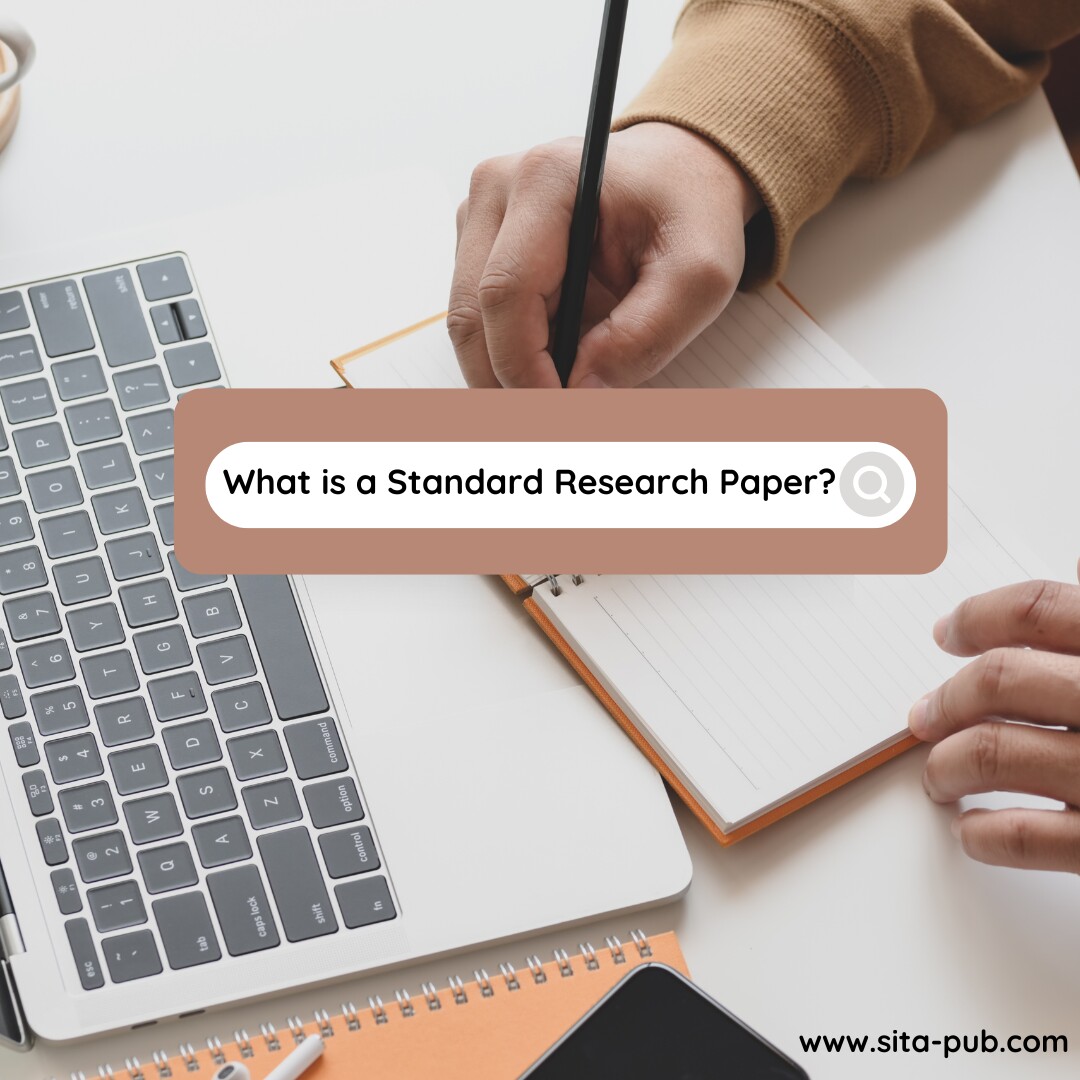What is a Standard Research Paper?


A research paper is a detailed document that presents an original study on a specific topic within a particular field. It is an important part of academic writing, allowing researchers to share their findings, methods, and insights with others in their discipline. Such papers are often published in academic journals, presented at conferences, or submitted as part of academic requirements.
Writing this type of document requires a systematic approach to inquiry, critical thinking, and effective communication. It involves gathering information, analyzing data, and drawing conclusions based on evidence. This process not only contributes to the body of knowledge in a field but also enhances the writer’s understanding of the topic.
The goal of this type of writing is to contribute new knowledge or perspectives to what is already known. This can involve presenting new findings, reinterpreting existing data, or analyzing a topic from a different angle. The standard structure can vary in length and depth depending on the topic and academic level, but it usually follows a clear format that makes it easy to read and understand.

The purpose of academic writing is multifaceted. For professors and researchers, it serves to share new findings and contribute to ongoing scholarly discussions. Academics often publish papers to establish their expertise in a field, influence thought, and advance knowledge. Their work can impact teaching, inform policy decisions, and inspire future research directions.
For students, writing these documents is often a requirement for graduation. This experience helps them develop critical thinking, analytical skills, and the ability to explain complex ideas clearly. Through this process, students learn to conduct thorough literature reviews, formulate research questions, and apply appropriate research methodology. The skills gained prepare students for their future careers, equipping them with valuable skills that are essential in many professional fields.
In addition to academic requirements, writing helps students organize their thoughts and present information logically. This is crucial in both academic and professional settings. The ability to communicate effectively through writing is a skill that benefits individuals throughout their careers.

A standard academic document typically includes several key components that contribute to its overall structure and effectiveness. Understanding these parts is essential for both writing and analyzing such documents. These components are:
The title of the paper should be concise, descriptive, and informative. It serves as the first impression of the work and clearly conveys the main topic or focus of the study. A good title can attract readers and provide insight into the content.
The abstract is a brief summary of the document, usually between 150 to 250 words. It gives an overview of the research question, methodology, key findings, and conclusions. The abstract allows readers to quickly judge the relevance of the work to their interests and helps them decide whether to read the full document.
The introduction sets the stage for the writing. It introduces the research topic, presents the research question or hypothesis, and explains why the study is important. This section should provide context for the research, highlighting its relevance and potential contributions to the field. A strong introduction engages readers and provides a clear rationale for the study.
The literature review surveys existing research related to the topic. It identifies gaps in current knowledge that the present study aims to address. By reviewing previous studies, the author establishes a theoretical framework and situates their work within the broader academic discourse. A well-structured literature review demonstrates the author's understanding of the field and provides a foundation for the research question.
The methodology section outlines the research design and methods used for data collection and analysis. It details the procedures followed, including sampling techniques, experimental designs, and any tools or instruments employed. Clarity in this section is crucial, as it allows other researchers to replicate the study and assess its validity. A robust methodology lends credibility to the findings and enables better understanding of how the results were derived.
In the results section, the author presents the findings of the study. This may include statistical analyses, tables, graphs, and other visual representations of data. The results should be reported objectively, without interpretation or bias. This section focuses on conveying the data clearly and concisely, allowing readers to draw their conclusions based on the evidence presented.
The discussion section is where the author interprets the results, explaining their implications and how they relate to the original research question. This section allows for a deeper analysis of the findings, considering their significance in the context of existing literature. The author may also discuss limitations of the study, potential biases, and areas for future research. A well-crafted discussion connects the findings to broader themes and highlights their relevance, encouraging further inquiry.
The conclusion summarizes the main findings and their significance. It reinforces the importance of the research and its contributions to the field. The conclusion may also suggest practical applications of the findings or outline potential future research directions. A strong conclusion leaves a lasting impression on readers and emphasizes the value of the work.
A comprehensive list of all sources cited throughout the paper is provided in the references section. Proper citation is essential for academic integrity and allows readers to locate the original sources for further exploration. The references should follow a specific citation style, such as APA, MLA, or Chicago, depending on the discipline and journal requirements.
In summary, academic writing is a vital tool for scholars and students alike, facilitating the dissemination of knowledge and fostering collaboration. Its purpose extends beyond mere documentation; it serves to advance understanding, provoke thought, and inspire further inquiry. By adhering to a standard structure that includes key components such as the title, abstract, introduction, literature review, methodology, results, discussion, conclusion, and references, researchers can effectively communicate their findings and contribute to the ongoing dialogue within their field.
Understanding the elements of a well-structured document is essential for anyone looking to engage in meaningful academic work, whether as an experienced researcher or a student preparing for graduation. The skills gained through this process are not only valuable in academia but also in various professional environments, making the ability to write a strong academic paper an important asset for future success.
At SITA Academy, we offer a variety of services for researchers worldwide. Our team provides paraphrasing, editing, formatting, journal article publication, thesis article extraction, and translation. We help improve your writing to meet high academic standards and guide you through the publication process. Our goal is to ensure your work is shared effectively and reaches the right audience. With a focus on quality and client satisfaction, SITA Academy is here to support your research needs. Allow us to support your journey to success!
If you have any questions, inquiries, or would like to learn more about our services, please don't hesitate to reach out to us. Our dedicated team is ready to assist you.